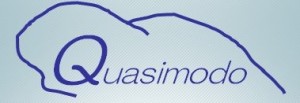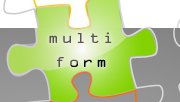- LASSO (European Research Council, 2015-2020) ERC Advanced Grant on Learning, Analysis, Synthesis and Optimization of Cyber Physical Systems.
- Idea4CPS (DK, Danish National Research Foundation, 2011-2017, director) Sino-Danish Basic Research Center on foundational theories and methods for the construction of trustworthy cyber-physical systems. Dansk-Kinesisk grunsdforskningscenter i fundamentale teorier og metoder til konstruktion af Cyber-physical systems.
- DiCyPS (DK, Innovationsfonden, 2015-2018, director) IT-infrastructure and methods for optimization of data-intensive cyber-physical systems with application to transport and energy sectors.
- Infinit (DK, FI, 2009 – 2016, director) National network for innovation and knowledge dissemination within ICT and software.
- Sensation (EU, FP7, 2013-2016, coordinator) Methods for design and construction of adaptive and reconfigurable embedded software systems, with predictable and optimal behaviour under varying availability of energy, execution time and demand from tasks.
- Cassting (EU, FP7, 2013-2016, site-leader) Development of game-theoretic methods and algorithms for synthesis of adaptive and cooperative embedded systems.
- Mantis (EU, ECSEL RIA, 2015-2018, site-leader) Development of methods and cyber-physical based IT platrofmr for support of proactive maintanance of (e.g.) offshore windmills, hospital equipment and production systems.
- CRAFTERS (EU, Artemis, 2012-2015) Design and verification of secure, dependable, timing-predicatable, heterogeneous multi-core systems.
- PPP: Popular Parallel Programming (DFF|FTP, 2015-2018, co-PI) Optimal scheduling of spread-sheet programs on multi-core architectures using model checking.
- TressPass (EU, FP7, 2012-2016) Methods for risk analysis of security of socio-technical embedded IT systems.
- CLINES (EU, FP7, 2013-2016, PI) Development of structures supporting regional innovation and research-based development for embedded systems in different domains, in particular smart cities. Collaboration between 4 European cluseters.
- ICT Energy (EU, FP7 CA, 2014-2016, site-leader) Coordinated Action for EU FET projects under the theme “Minimizing ICT Energy to the limit”.
- Transatlantic CPS Summit (H2020 CA, 2015-2017, site-leader) EU/US coordinated road-mapping of future research and challenges within cyber-physical systems.
- Tacle (EU, Cost Action, site-leader) WCET analysis of embedded software.
Previous Projects
Director DaNES – Danish Network for Intelligent Embedded Systems – is an Advanced Technological Platform (Højteknologisk Platform) bringing together the brightest minds from research and industry with the purpose of strengthening the development of intelligent embedded systems in Danish products.
Co-director The Villum Kann Rasmussen Foundation has awarded a grant of 25 mill. DKK to MT-LAB – a VKR Centre of Excellence, which is a cooperative research centre with partners from The Technical University of Denmark, Aalborg University and the IT University of Copenhagen.
![]() Coordinator MoDES is sponsored by the programme NabiIT under the Danish Stategic Research Council aiming at developing model-driven and component based methods for the design and implementation of embedded systems.
Coordinator MoDES is sponsored by the programme NabiIT under the Danish Stategic Research Council aiming at developing model-driven and component based methods for the design and implementation of embedded systems.
 Co-coordinator of Modeling and Validation Cluster. ArtistDesign is a driving force for federating the European research community in Embedded Systems Design. It brings together 31 of the best research teams as core partners, 15 Industrial and SME affiliated Industrial partners, 25 affiliated Academic partners, and 5 affiliated International Collaboration partners who participate actively in the technical meetings and events.
Co-coordinator of Modeling and Validation Cluster. ArtistDesign is a driving force for federating the European research community in Embedded Systems Design. It brings together 31 of the best research teams as core partners, 15 Industrial and SME affiliated Industrial partners, 25 affiliated Academic partners, and 5 affiliated International Collaboration partners who participate actively in the technical meetings and events.
 Coordinator ICT STREP project under FP7. The main goal of Quasimodo is to develop new techniques and tools for model-driven design, analysis, testing and code-generation for advanced embedded systems where ensuring quantitative bounds on resource consumption is a central problem.
Coordinator ICT STREP project under FP7. The main goal of Quasimodo is to develop new techniques and tools for model-driven design, analysis, testing and code-generation for advanced embedded systems where ensuring quantitative bounds on resource consumption is a central problem.
 ICT STREP project under FP7. The main objective of MULTIFORM is the integration and the support for interoperability of tools and methods based on different modelling formalisms in order to make a significant step towards integrated coherent tool support for the design of large complex controlled systems from the first concept to the implementation and further on over their entire life cycle.
ICT STREP project under FP7. The main objective of MULTIFORM is the integration and the support for interoperability of tools and methods based on different modelling formalisms in order to make a significant step towards integrated coherent tool support for the design of large complex controlled systems from the first concept to the implementation and further on over their entire life cycle.
 Funded by the European Science Foundation. The GASICS project studies game theoretic formalizations of interactive computational systems and algorithms for their analysis and synthesis. Our aim is to extend the existing notions of games played on graphs introduced by computer scientists.
Funded by the European Science Foundation. The GASICS project studies game theoretic formalizations of interactive computational systems and algorithms for their analysis and synthesis. Our aim is to extend the existing notions of games played on graphs introduced by computer scientists.
![]() ARTEMIS project: Reduced Certification Costs for Trusted Multi-core Platforms. RECOMP recognizes the fact that the increasing processing power of embedded systems is mainly provided by increasing the number of processing cores. The increased numbers of cores is commonly regarded as a design challenge in the safety-critical area, as there are no established approaches to achieve certification. At the same time there is an increased need for flexibility in the products in the safety-critical market. This need for flexibility puts new requirements on the customization and the upgradability of both the non-safety and safety-critical critical part.
ARTEMIS project: Reduced Certification Costs for Trusted Multi-core Platforms. RECOMP recognizes the fact that the increasing processing power of embedded systems is mainly provided by increasing the number of processing cores. The increased numbers of cores is commonly regarded as a design challenge in the safety-critical area, as there are no established approaches to achieve certification. At the same time there is an increased need for flexibility in the products in the safety-critical market. This need for flexibility puts new requirements on the customization and the upgradability of both the non-safety and safety-critical critical part.

